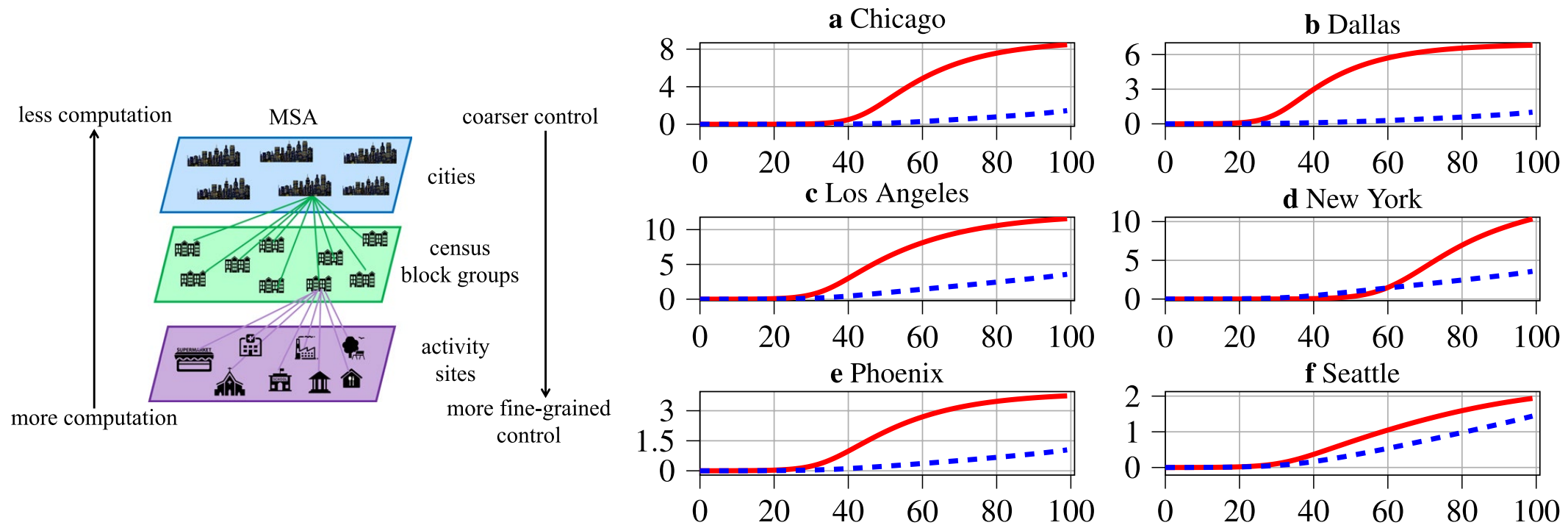Multiscale Heterogeneous Optimal Lockdown Control for COVID-19 Using Geographic Information
Cyrus Neary, Murat Cubuktepe, Niklas Lauffer, Xueting Jin, Alexander J. Phillips, Zhe Xu, Daoqin Tong, and Ufuk Topcu
Scientific Reports.

Abstract: We study the problem of synthesizing lockdown policies—schedules of maximum capacities for different types of activity sites—to minimize the number of deceased individuals due to a pandemic within a given metropolitan statistical area (MSA) while controlling the severity of the imposed lockdown. To synthesize and evaluate lockdown policies, we develop a multiscale susceptible, infected, recovered, and deceased model that partitions a given MSA into geographic subregions, and that incorporates data on the behaviors of the populations of these subregions. This modeling approach allows for the analysis of heterogeneous lockdown policies that vary across the different types of activity sites within each subregion of the MSA. We formulate the synthesis of optimal lockdown policies as a nonconvex optimization problem and we develop an iterative algorithm that addresses this nonconvexity through sequential convex programming. We empirically demonstrate the effectiveness of the developed approach by applying it to six of the largest MSAs in the United States. The developed heterogeneous lockdown policies not only reduce the number of deceased individuals by up to 45 percent over a 100 day period in comparison with three baseline lockdown policies that are less heterogeneous, but they also impose lockdowns that are less severe.
